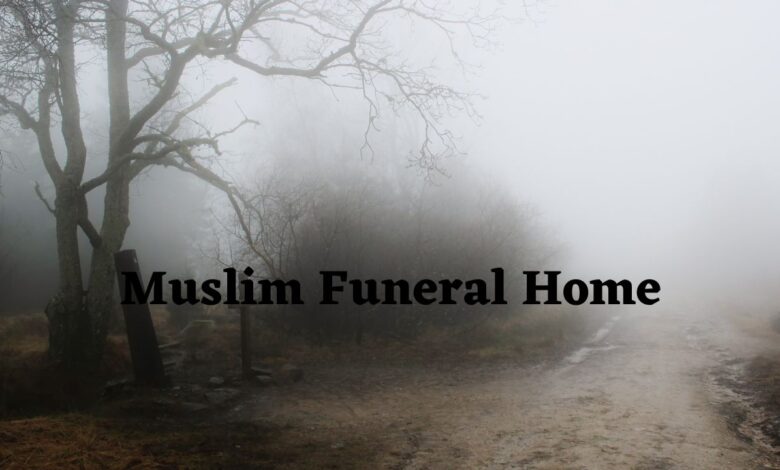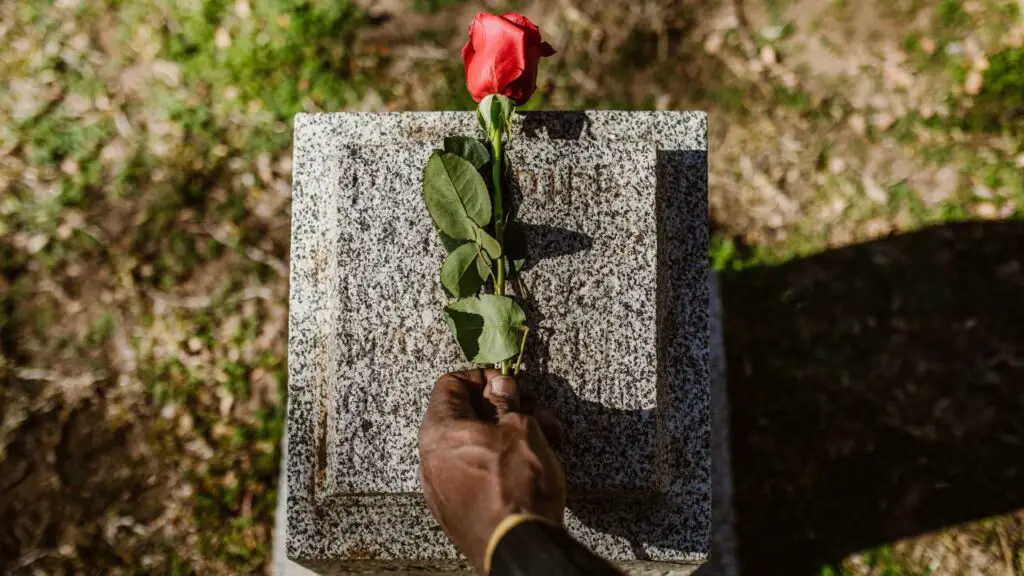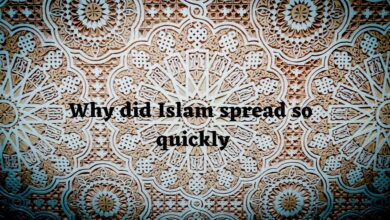Muslim Funeral Home : Embracing Traditions
Honoring Traditions and Providing Solace: A Look Inside a Muslim Funeral Home


Introduction
In every culture and religion, the rituals surrounding death play a crucial role in helping families navigate the grieving process and provide a sense of closure. Within the Muslim community, a unique and profound set of traditions guide the final journey of the departed soul. Muslim funeral homes serve as essential institutions that uphold these customs while offering compassionate services to bereaved families during their time of need. In this article, we will explore the significance of Muslim funeral homes, their role in preserving religious traditions, and the compassionate support they provide to grieving families.
Honoring Islamic Funeral Traditions
Islamic funeral traditions are deeply rooted in the teachings of the Quran and the practices of the Prophet Muhammad (peace be upon him). These traditions emphasize simplicity, humility, and respect for the departed soul. When a Muslim passes away, the funeral process usually follows specific steps:
- Ghusl: The body is ritually washed by close family members of the same gender as the deceased. This cleansing is performed with respect and reverence.
- Kafan: The body is then wrapped in a simple shroud, known as the kafan, which symbolizes equality in death.
- Salat al-Janazah: A funeral prayer is offered by the community, seeking mercy and forgiveness for the deceased. This prayer is an essential aspect of the funeral rites.
- Burial: Muslims are typically buried in a simple grave, facing the holy city of Mecca. The burial process is carried out with the utmost care and dignity.
Role of Muslim Funeral Homes
Muslim funeral homes play a pivotal role in preserving and facilitating these sacred funeral traditions. Their services are designed to cater to the specific needs of Muslim families while ensuring that the religious obligations are fulfilled. Some key aspects of their role include:
- Ghusl and Ritual Washing: Funeral homes with experienced staff ensure that the process of ghusl is carried out according to Islamic guidelines. They handle this sensitive task with empathy, ensuring that the body is treated with respect and care.
- Kafan Preparation: Muslim funeral homes provide appropriate kafans and prepare the deceased for burial according to Islamic custom, respecting their dignity and modesty.
- Salat al-Janazah Arrangements: Funeral homes assist in organizing the funeral prayer, inviting the Muslim community to participate in seeking blessings for the deceased.
- Burial Services: These institutions help coordinate the burial process, ensuring that the deceased is laid to rest in accordance with Islamic traditions.
- Family Support: Muslim funeral homes offer emotional support and guidance to grieving families, assisting them with funeral arrangements and paperwork during their time of sorrow.
- Cultural Sensitivity: Funeral homes with experience in serving Muslim families are more likely to be sensitive to cultural nuances and religious practices, ensuring that customs are followed meticulously.
Compassionate Support for Grieving Families
The loss of a loved one is an emotionally challenging experience, and Muslim funeral homes understand the importance of offering compassionate support to grieving families. They provide a safe and comforting environment where families can mourn and say their final goodbyes with dignity. Funeral home staff are trained to handle bereaved families with empathy and respect, offering a shoulder to lean on during their time of sorrow.
Additionally, these institutions often provide bereavement counseling or connect families with grief support groups to help them cope with their loss. The assistance extends beyond the funeral itself, recognizing that grief is a long process that requires ongoing care and understanding.
Community and Social Importance
Muslim funeral homes are not just businesses; they hold a central place within the Muslim community. Their role goes beyond providing funeral services; they also serve as hubs for community members to come together and support each other during times of grief. The funeral prayer, attended by fellow Muslims, fosters a sense of unity and solidarity among the community members, reinforcing the bond of brotherhood and sisterhood.
Furthermore, Muslim funeral homes often engage in philanthropic activities, supporting families who may not have the financial means to afford funeral expenses. This charitable aspect reflects the Islamic principles of compassion, care, and helping those in need.
Conclusion
Muslim funeral homes are vital institutions that serve as custodians of Islamic funeral traditions, honoring the departed souls with dignity and respect. By following the sacred rituals prescribed by the faith, these funeral homes not only provide vital services to Muslim families but also act as pillars of support within the community. Through their compassionate care, they help families navigate the grieving process, offering solace during their most difficult moments. As they continue to uphold the values of Islamic burial practices, Muslim funeral homes play a crucial role in preserving cultural heritage and religious identity within the diverse fabric of the Muslim community.
What is a Muslim funeral home?
A Muslim funeral home is a facility specifically dedicated to providing funeral services in accordance with Islamic traditions and customs. These funeral homes cater to the needs of Muslim families during the grieving process and ensure that the burial and funeral rites are conducted in accordance with Islamic principles.
What services do Muslim funeral homes offer?
Muslim funeral homes typically offer a range of services, including the preparation of the deceased’s body according to Islamic guidelines, arranging for washing and shrouding (kafan), providing space for visitation (janazah), organizing funeral prayers (salat al-janazah), and facilitating the burial process.
Are Muslim funeral homes open to all Muslims, regardless of sect or denomination?
Yes, Muslim funeral homes generally serve all Muslims, irrespective of their sect or denomination. They accommodate the funeral rites and customs observed by various Islamic traditions to respect the diversity within the Muslim community.
Can non-Muslims use Muslim funeral homes for their loved ones?
While Muslim funeral homes are primarily designed to cater to the specific needs of Muslim funerals, they may extend their services to non-Muslims, depending on the funeral home’s policy and the family’s preferences.
How are burial arrangements made at a Muslim funeral home?
When a death occurs, the family or designated representative typically contacts the Muslim funeral home to initiate the burial arrangements. The funeral home staff will guide the family through the necessary procedures and paperwork while respecting Islamic customs.
What is the role of the Imam in a Muslim funeral home?
The Imam, or Islamic religious leader, plays a vital role in Muslim funeral homes. They lead the funeral prayers (salat al-janazah) and provide spiritual guidance and support to the bereaved family during the grieving process.
Can the deceased be embalmed at a Muslim funeral home?
In Islam, embalming is generally discouraged because it involves altering the body after death. Muslim funeral homes usually follow the practice of washing and shrouding the deceased instead, as per Islamic traditions.
Can the deceased be cremated at a Muslim funeral home?
Cremation is not permitted in Islam. Muslim funeral homes strictly adhere to Islamic burial customs, which involve burying the deceased in a simple shroud directly in the ground.
How long does it take for a Muslim funeral to occur after death?
Islamic traditions encourage prompt burial, ideally within 24 hours after death, except in cases where legal or logistical reasons may cause some delay.
Are Muslim funeral homes involved in repatriating deceased Muslims to their home countries?
Yes, some Muslim funeral homes offer repatriation services for deceased Muslims who wish to be buried in their home countries. These services involve the preparation and transportation of the deceased to the desired destination following Islamic guidelines.





